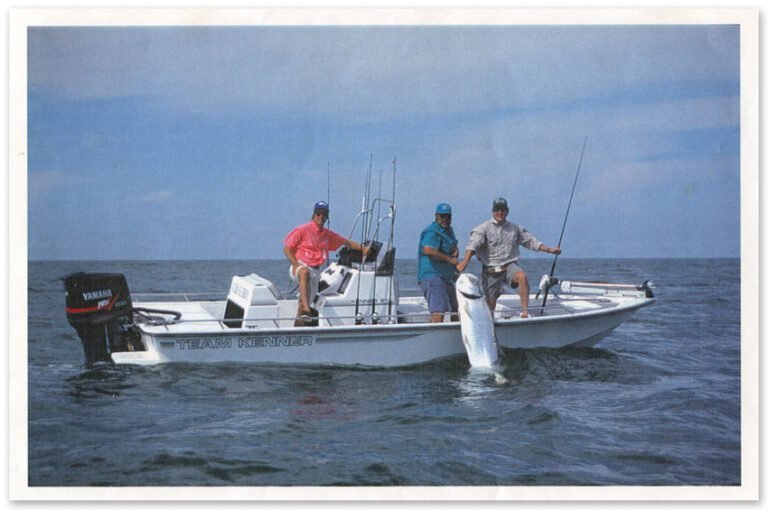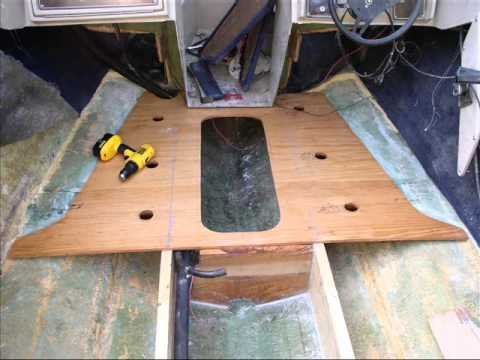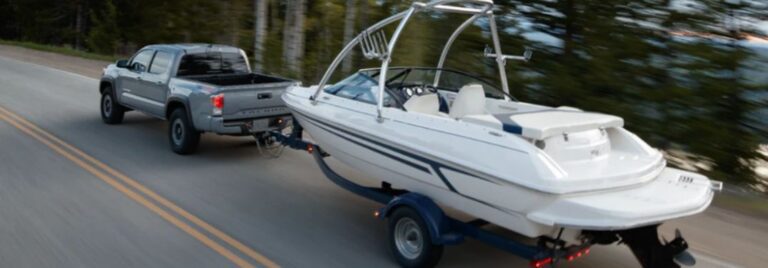What Does Dry Weight Mean on a Boat | Weight Definition 2025
The dry weight of a boat is its weight when it’s not carrying any fuel, water, or people. Most boats have a capacity plate that lists the maximum weight the boat can carry safely. The dry weight lets you know how much of that capacity is taken up by the boat itself.
“Dry weight” is a term used to describe the weight of a boat when it’s not carrying any passengers, cargo, or fuel. This is important to know because it can affect how your boat handles in the water. A boat that’s too heavy might sit low in the water and be difficult to maneuver.
On the other hand, a boat that’s too light might be more likely to tip over.
Knowing the dry weight of your boat can help you make sure it’s properly balanced when you’re out on the water. It’s also a good idea to know the dry weight of any boats you’re considering buying or renting.
That way, you can be sure they’ll be able to safely carry you and your gear.
Does Dry Weight Include Motor
When talking about the dry weight of a vehicle, this refers to the weight of the vehicle without any fluids. This would include the weight of the engine, but not the oil that is in it. So basically, everything inside and on the car, minus any liquids.
Wet Weight Vs Dry Weight Calculation
Wet weight vs dry weight calculation is a topic of great importance to many people, especially those who are trying to lose weight. The terms “wet weight” and “dry weight” refer to the amount of water in your body. Wet weight includes all of the water in your body, while dry weight does not.
There are many ways to calculate wet weight vs dry weight. The most common method is to use your body mass index (BMI). BMI is a number that reflects how much fat you have on your body.
It is calculated by dividing your height in inches by your waist size in inches. If your BMI is 30 or above, you are considered obese. If it is between 25 and 29.9, you are considered overweight.
Another way to calculate wet weight vs dry weight is to use skinfold measurements. This involves using calipers to measure the thickness of skinfolds at different points on your body. The average adult has between 3 and 5 percent body fat, so if you have more than this, you may be carrying extra water weight.
Once you know your wet weight vs dry weight, you can start working on losing any excess waterweight by following a healthy diet and exercise plan. Cutting out salt and processed foods will help reduce bloating and puffiness caused by excess water retention. Drinking plenty of fluids, especially water, will also help flush out excess water from your system.
And finally, regular exercise will help tone up your muscles and give them the strength they need to better support your skeleton and joints, which can also reduce overall pain and inflammation caused by excess fluid retention around these areas.
Dry Weight Vs Wet Weight Camper
Are you wondering about the difference between dry weight and wet weight when it comes to campers? Here’s what you need to know.
Dry weight is the base weight of the camper without any water, propane, or other fluids.
Wet weight includes these fluids. So, if you’re trying to figure out how much your camper weighs when it’s fully loaded, you’ll need to add the wet weight to the dry weight.
Here are some things that affect a camper’s dry weight:
-The size of the camper (larger campers will weigh more)
-The materials used in construction (heavier materials like steel will add to the dry weight)
-The type of furniture and appliances inside the camper (wooden furniture is heavier than plastic)
Wet weights can vary widely depending on how much water and propane you’re carrying. A full tank of water can add several hundred pounds to the wet weight, so it’s important to factor this in when deciding how much your camper can safely carry.
Boat Weight Calculator
If you’re thinking of buying a boat, one of the first things you’ll need to do is figure out what size and type of boat will suit your needs. To do that, you’ll need to understand a bit about how boats are measured and their weights. With that information, you can use our Boat Weight Calculator to get a good estimate of the weight of the boat you’re interested in.
Knowing the weight of your boat is important for a number of reasons. First, it will affect how much money you’ll have to spend on fuel. Heavier boats require more fuel to move them through the water.
Second, the weight of your boat will play a role in how easy it is to trailer behind your car or truck. The heavier the boat, the more difficult it will be to move it around on land. Finally, if you plan on mooring your boat at a dock, the weight (and length) of your vessel will determine which size slips are available to you.
So how do we calculate the weight of a given vessel? It’s actually quite simple – we take into account two main factors: displacement and material composition. Displacement is simply the amount of water that a boat displaces when fully submerged.
This is affected by things like hull shape and internal volume (e.g., if there’s a lot of storage space inside). Material composition refers to what the different parts of the boat are made from – this includes everything from wood and fiberglass hulls to aluminum superstructure . By taking these two factors into account, we can get a pretty good estimate for how much any given vessel weighs.
To use our Boat Weight Calculator , simply select either “displacement” or “material composition” as your input method. If you choose displacement , enter in either the length or width (whichever is greater) and draft/depth at full load . For material composition , select which type(s)of materials make up different partsofyourboatfromthe drop-down menus provided .
Onceyouhave allofyour inputs entered correctly press “calculate.” Doing sowillgiveyou anestimateforthe dryweightoftheboatinpoundsorkg . Youcanthen use thisinformationtocomparetootherboatsinyoursearchand geta better ideaofwhichoneis rightforyou!
Does Boat Dry Weight Include Trailer
When shopping for a new boat, it’s important to know what the “dry weight” includes. Does it include the trailer?
The short answer is: no, the dry weight does not include the trailer.
The dry weight is the weight of the boat itself without any fluids or gear. This is usually listed in the specs from the manufacturer. It’s important to know this number because it can affect how your boat tows and performs on the water.
If you’re adding a lot of gear or fluids, you’ll need to factor that into your overall weight.
However, the dry weight does not include the trailer. That’s because trailers vary widely in size and weight, so it’s difficult to give an accurate estimate of what they add to the total equation.
In general, you can expect a trailer to add about 500-1,000 pounds (227-453 kg) to your overall load.
Of course, every situation is different so it’s always best to consult with your boat dealer or mechanic before heading out on the water. They can help you determine if your specific setup will be safe and seaworthy.

Credit: www.autotrader.com
Does Dry Weight Include Boat Motor?
The dry weight of a boat includes everything that is permanent and attached to the hull. This would include items such as built-in furniture, the engine, and batteries. It does not, however, include anything that can be removed from the boat such as personal belongings, fishing gear, or fuel.
The dry weight is important to know because it is used to calculate things like the maximum capacity of the boat and how much water it will displace.
What is the Difference between Dry And Wet Weight on a Boat?
The dry weight of a boat is its actual weight without any fluids onboard. This includes the hull, engine, and all other materials that make up the boat. The wet weight is the dry weight with all fluids onboard.
This includes water in the bilge, fuel in the tanks, and any other liquids onboard.
Does the Dry Weight of a Boat Include the Trailer?
No, the dry weight of a boat does not include the trailer. The dry weight is the weight of the boat itself without any fluids or cargo. The trailer adds additional weight to the equation and should be factored in separately.
What is Dry Weight Vs Wet Weight?
The terms “dry weight” and “wet weight” are often used to describe the weight of a vehicle, but what do they actually mean?
Dry weight refers to the curb weight of a vehicle with no passengers, no cargo, and no fluids. In other words, it’s the base weight of the car with nothing added to it.
Wet weight, on the other hand, includes all those things. So a car that weighs 3,000 pounds dry might weigh 3,200 pounds wet.
Why is this distinction important?
Well, if you’re trying to calculate how much your car can tow or how much fuel it will use, you need to know its dry weight. And if you’re trying to figure out how much your car weighs with a full tank of gas and a trunk full of luggage, you need to know its wet weight.
Of course, there are other factors that can affect a car’s weight besides whether or not it has fluids in it.
For example, an SUV with four-wheel drive is going to weigh more than a similar model without 4WD. So be sure to take all factors into account when determining how much your car weighs.
How to Use Archimedes' Principle to Find the Maximum Weight a Boat Can Hold
Conclusion
Dry weight is an important measurement for a boat because it tells you how much the boat weighs without any fluids or passengers on board. This number is important because it can help you determine if your boat is overweight and needs to be lighter. Dry weight can also help you calculate how much your boat can carry without being overloaded.





